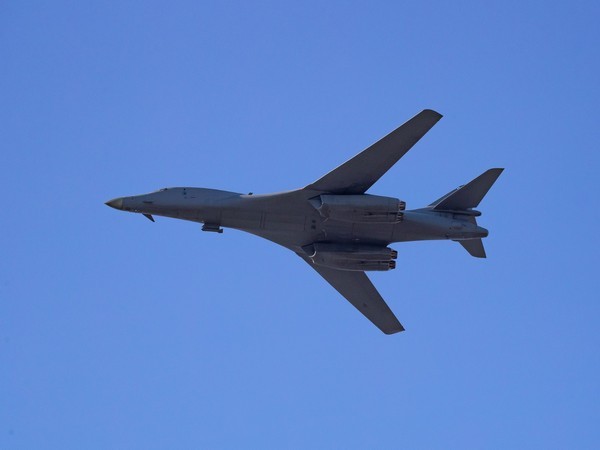U.S. launches strikes in Iraq, Syria, nearly 40 reported killed
Feb 04, 2024

Washington [US], February 4: The United States launched airstrikes in Iraq and Syria against more than 85 targets linked to Iran's Revolutionary Guard (IRGC) and militias it backs, reportedly killing nearly 40 people, in retaliation for a deadly attack on U.S. troops.
The strikes, which included the use of long-range B-1 bombers flown from the United States, were the first in response to the attack last weekend in Jordan by Iran-backed militants, and more U.S. military operations are expected in the coming days.
The strikes intensified a conflict that has spread into the region since war erupted between Israel and Hamas after the militant Palestinian group's deadly assault on Israel on Oct.7.
Iran's foreign ministry spokesperson Nasser Kanaani said in a statement the attacks represented "another adventurous and strategic mistake by the United States that will result only in increased tension and instability".
Iraq summoned the U.S. charge d'affaires in Baghdad to deliver a formal protest.
Iraq's Popular Mobilization Forces, a state security force including Iran-backed groups, said 16 of its members were killed including fighters and medics. The government earlier said civilians were among 16 dead.
In Syria, the strikes killed 23 people who had been guarding the targeted locations, said Rami Abdulrahman, director of the Syrian Observatory for Human Rights, which reports on war in Syria.
U.S. Lieutenant General Douglas Sims, the director of the Joint Staff, said the attacks appeared to be successful, triggering large secondary explosions as the bombs hit militant weaponry. He said the strikes were undertaken knowing that there would likely be casualties among those in the facilities.
Despite the strikes, the Pentagon has said it does not want war with Iran and does not believe Tehran wants war either, even as Republican pressure has increased on U.S. President Joe Biden to deal a blow directly.
Iran, which backs Hamas, has sought to stay out of the regional conflict itself even as it backs groups that have entered the fray from Lebanon, Yemen, Iraq and Syria - the so-called "Axis of Resistance" that is hostile to Israel and U.S. interests.
Source: Fijian Broadcasting Cooperation









